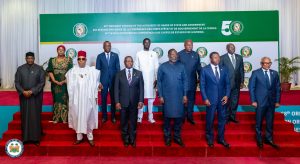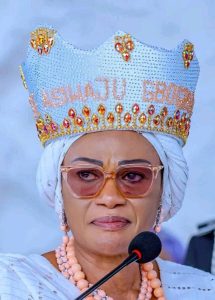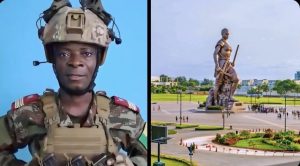Abuja, Nigeria – 3 August 2025
Nigeria’s ruling All Progressives Congress (APC) has been accused of orchestrating a multibillion-naira digital campaign aimed at manipulating public opinion and silencing opposition voices in the run-up to the 2027 general elections. The allegations, detailed in a scathing opinion piece by commentator Mohammed Bello Doka, describe the initiative as a “calculated digital ambush” involving algorithms, influencers, and bot-driven propaganda to obscure the government’s record on economic hardship and security challenges.
The piece, titled Digital Ambush: Inside the APC’s Multibillion Naira Plot to Silence Dissent Before 2027, was published on 2 August and widely shared on social media, including by former Kaduna State Governor Nasir El-Rufai on X (formerly Twitter). Doka claims the strategy is masked as a “media strategy” but is designed to “drown out opposition voices” and “rewrite the story of their administration’s catastrophic economic and security record.”
Central to the accusations is the Progressive Digital Media Summit, a two-day event held on 1-2 August at the State House Banquet Hall in Abuja. Organised under the theme “Unveiling the Critical Role of New Media in National Development,” the summit brought together content creators, influencers, digital strategists, and government media aides. Attendees discussed digital innovation and nation-building, but Doka portrays it as a “state-backed convergence” to deploy “digital soldiers” for spreading “strategic disinformation and narrative laundering.”
Inside sources cited in Doka’s article allegedly confirmed a “coordinated deployment” across platforms like TikTok, Telegram, Facebook, and X, with funds channelled through “covert media contracts, influencer retainerships, and ghost-operated accounts.” A quoted former government insider reportedly stated, “2027 has already begun online,” highlighting billions in investments to “overwhelm the public space with false hope and manufactured praise.”
President Bola Tinubu, who opened the summit, urged participants to use their influence responsibly. In his address, he called on young Nigerians to “foster unity, not division” and to verify information before sharing it. “Your ideas, your energy, and your commitment to national development are among Nigeria’s greatest assets,” Tinubu said, encouraging creators to build solutions and promote digital literacy. APC supporters have hailed the event as a legitimate effort to enhance digital communication and counter misinformation, with one attendee describing it as a “historic” gathering for progressive media.
However, critics argue the summit exemplifies the government’s attempt to whitewash failures. Doka’s piece reminds readers of pressing issues: over 130 million Nigerians in multidimensional poverty, soaring food inflation, normalised mass kidnappings and banditry, and the economic fallout from fuel subsidy removal, which he says has “crushed the masses” while elites remain insulated.
The allegations have sparked debate online, with opposition figures and commentators accusing the APC of psychological warfare rather than genuine campaigning. El-Rufai’s sharing of the piece has amplified its reach, drawing responses from APC defenders who dismiss it as “conspiratorial paranoia” and “desperation from a fractured opposition.” One counter-article labelled the claims hypocritical, asserting that the APC’s digital efforts are “transparent and democratic,” akin to global best practices in governance communication.
Opposition voices, including those aligned with the Labour Party and People’s Democratic Party (PDP), have called for vigilance. Doka urges alternatives to “rise now” by scaling digital communications, building “firewalls of truth,” and forming rapid response teams to combat what he calls “state-sponsored manipulation.” Some X users echoed this, warning that the strategy aims to “gaslight” Nigerians into believing “things are getting better” amid hardships.
The controversy underscores deepening polarisation in Nigeria’s digital space, where social media has become a battleground for political narratives. As 2027 approaches, analysts warn that such strategies could erode trust in democratic processes, with calls for regulatory oversight on digital campaigns growing louder.






